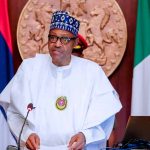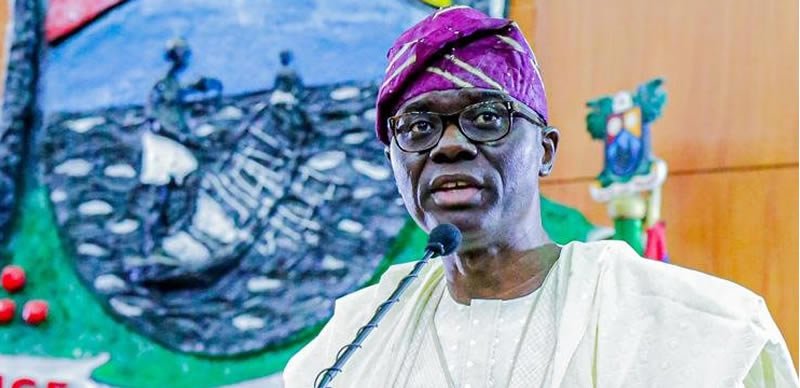Vice President Yemi Osinbajo says the National Livestock Transformation Plan (NLTP) of the Federal Government is projected to create about two million jobs if implemented successfully across the country.
Osinbajo said this at the 2022 Livestock and Aquaculture Trade Fair, organised by Linkers Continental Resources Ltd., in collaboration with the Ministry of Agriculture in Lagos on Tuesday.
The vice president was represented by Mrs Efosa Onyezebe, Delivery Advisor, National Livestock Transformation Plan, office of the Special Adviser to the President on Agriculture.
He said that the policy was targeted at transforming the environment that would lead to peaceful co-existence, economic development and food security for the entire population.
He said that private investors should take advantage of the large investment opportunity in the livestock sector that would provide jobs.
According to him, as the population increases, there is a great opportunity for private investors in the country to tap into the livestock industry.
“We are projecting that should this project get the support of everybody and is implemented successfully, about two million jobs will be created in Nigeria.
“Nigeria is a land with large opportunity, the agriculture sector has huge opportunity and the livestock sector predominantly also has enormous opportunity because demands for meat and dairy products continually grows.
“Therefore, there is need for the livestock sector to radically transform to respond to the increasing demands for meat and dairy products,” he said.
The vice president further said that agriculture consistently contributed about 40 per cent to the country’s GDP, adding that the sector remained the largest contributor to non-oil growth.
He said that the Federal Government would soon begin training for Lagos State team on NLTP.
“The model of the programme is to work with the federal and state government in partnership with the livestock sector to be modernised.
“This will contribute largely to peace building in the county, reduce conflict resolution and move the sector from nomadic to mechanised ranching system.
“Lagos State Government has already indicated interest to be part of this programme. We will come in and train them on how to setup the NLTP in their state.
“We will work with them continuously. We are waiting for the next step and once we have conversation with them, probably in few months, we will start the training,” he said.
The vice president said that 22 states had already indicated interest, adding that the project had already started in Adamawa, Kaduna, Plateau and Nasarawa.
Dr Mahmood Abubakar, Minister of Agriculture and Rural Development, said the major problem hindering the promotion and development of the livestock and aquaculture industry was none availability of parent stock, prime feeds and scarcity of fish fingerlings.
Abubakar, represented by Mrs Omolara Oguntuyi, Zonal Director, South-West, Federal Ministry of Agriculture, said that if an enabling environment was created, livestock and aquaculture production would play significant role in achieving Sustainable Development Goal to eradicate poverty and hunger.
“A nation should be able to feed her population in order to occupy a place of pride in the community of nations.
“Nigeria is a country richly blessed with abundant natural and human resources that if properly harnessed can feed citizens and export the surpluses to other countries to generate more revenue.
“We have to develop our fishing industry; we cannot be dependent on importation. God did not make a mistake when He gave us the Atlantic Ocean.
“Those lakes we have, it is only a prodigal child that will have resources and will not use it and instead be looking at what others have,’’ he said.
The minister said that the country was blessed with cattle, sheep, goats, pigs, poultry, rabbit, snail, tilapia and catfish that it could promote.
“The only thing that is unacceptable is for Nigeria to be totally dependent on other countries for animal protein when we have land and water that we are not making use of.
“The time is ripe for us to revolutionise agriculture in Nigeria, especially in the livestock and aquaculture development and the youths should be the bedrock of the drive to transform the sector,’’ he said.
In her remarks, Ms Abisola Olusanya, Lagos State Commissioner for Agriculture, said that the fair provided stakeholders opportunity to interact between farmers and input suppliers to facilitate knowledge sharing of local farm produce.
Olusanya, represented by Mrs Tokunbo Emokpae, Permanent Secretary in the ministry, called for collaborations with private sector investors and multilateral donor agencies to make food systems more sustainable and resilient in the face of global food shortages.
She said that food shortage globally was occasioned by climate change and other socio-economic factors.
She added that sustainable livestock, aquaculture and indeed agricultural development as a whole was a journey the state government could not embark on alone.
“As a government, we are not relenting in our efforts to ramp up food production and processing to meet the identified gap,” she said.
Pastor Temitope Oluwadipe, the organiser of the trade fair, said the exhibition was to bring professionals and stakeholders together to package a recovery plan for the sector.
He said that the fair was a call to revitalise the major component of agriculture and guarantee food security. (NAN)





2 Comments